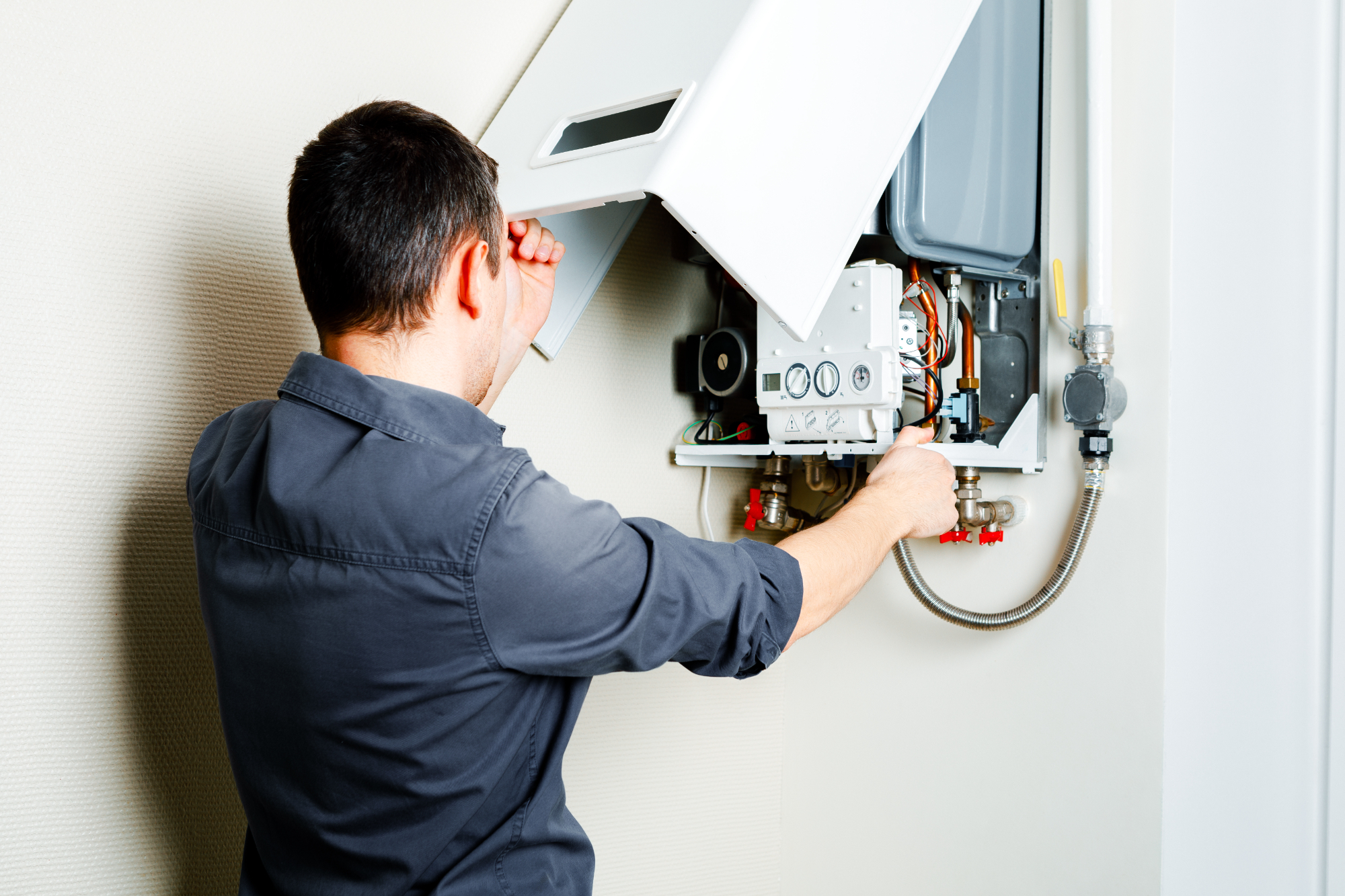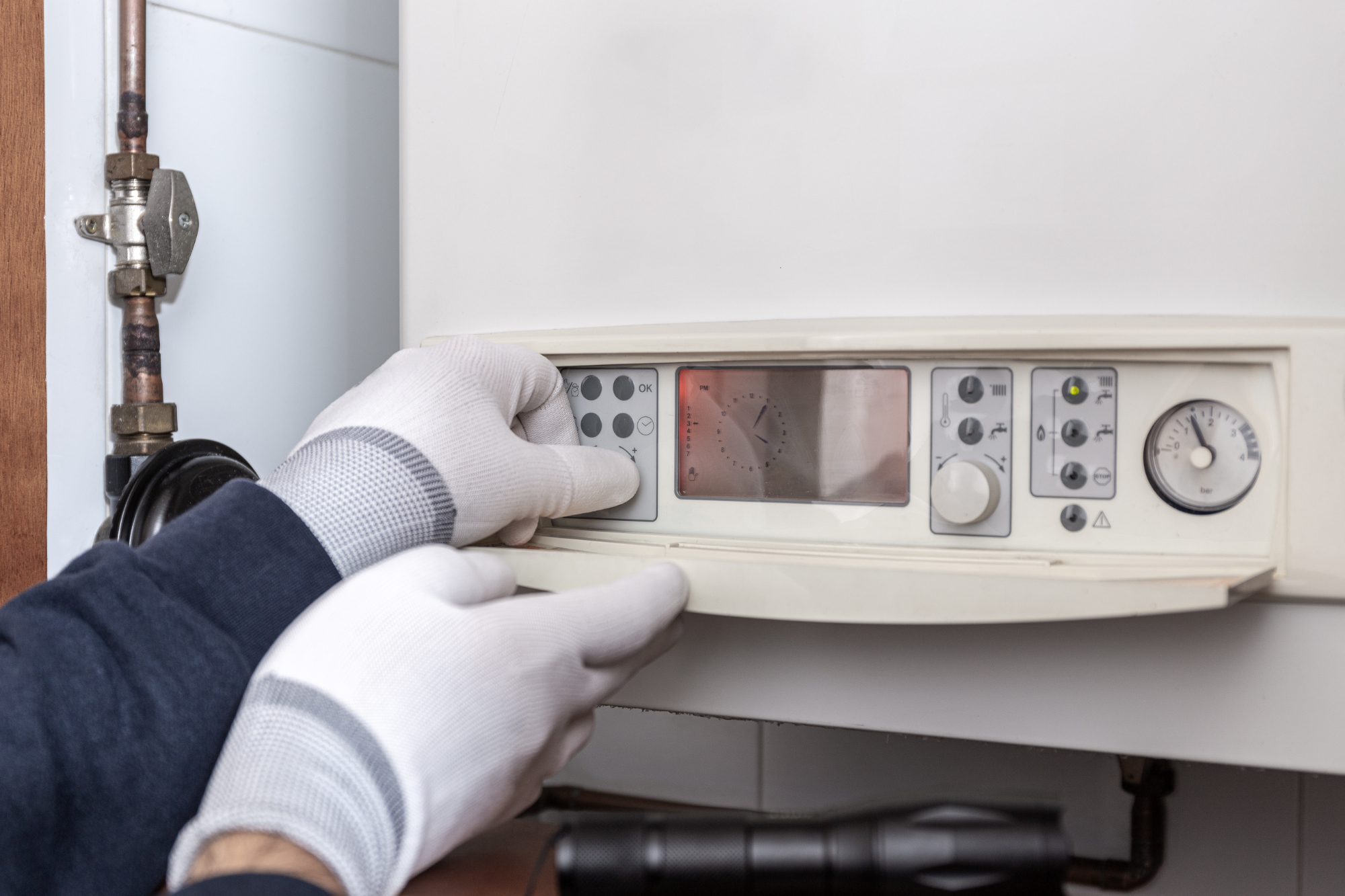As a homeowner, you may ask: how do I prevent boiler breakdowns? We look at the steps to take to ensure your boiler remains well maintained and avoids problems.
Preventing Boiler Breakdowns
When your central heating system or boiler system breaks down or has to work harder to warm you through the colder months, you realise you took it for granted. While you may be performing regular maintenance on your new boiler, there is still more you can do to prevent boiler breakdowns.
If your energy costs are increasing despite your annual boiler service being in place, it's maybe time you call a heating engineer. To prevent emergency boiler repair, keep reading this article as we further discuss boiler breakdown.
What Is A Boiler Breakdown?
Whether you use a combi, electric or gas boiler, there will be moments during its lifespan where it doesn't work as efficiently. Over time, sludge, dirt, dust and rust build up inside the pipes, and the system is no longer in good condition.
A boiler breakdown is defined as the time when your boiler cannot operate properly to warm your house, either not switching on or not working to the desired temperature. There are multiple reasons why this can happen, from too high pressure to bursting pipes, both of which aren't generally the customer's fault. 
Registered gas safe heating engineers will diagnose the issue and mitigate risk by advising the best option to deal with blockages and other problems. While boiler problems can be an inconvenience, you should know the costly difference between a breakdown and something more minor.
If you get your boiler serviced regularly, check the pressure gauge and prevent frozen pipes, you are putting yourself in the best position to keep your boiler for many years.
However, when boiler issues arise, the last thing you should do is panic. Most boilers have a method of notifying homeowners when there is something wrong, and some simple reading around the subject will inform you of the solution you should take.
If you have recently had a boiler installation, you should familiarise yourself with the unit, how to read the water pressure and how the boiler works. An old boiler may experience a breakdown more often, which is why your annual service and regular maintenance in between is crucial.
Remember to always have work carried out by a registered Gas Safe engineer. They can prove they are registered by showing you their ID card, which they must carry when working on gas appliances. This means they are insured to work on your boiler, and you can trust them.
Don't attempt to work on your boiler yourself as you may jeopardise the warranty and you don't have the correct equipment.
Ways to Prevent a Boiler Breakdown
Thankfully, you can avoid a boiler breakdown and the costly repairs associated with them. To avoid being without heating and hot water for long periods, here are our top tips for maintaining a healthy boiler:
Get an annual boiler service
The most important tip you can take on board is to get a yearly service, and heating engineers will emphasise that point regularly.
When you hire a gas safe engineer to conduct your annual service, they will check the pipework, boiler unit and radiators to ensure a good level of maintenance has been kept.
Plumbing mistakes can happen when you don't have a service done regularly, such as carbon monoxide being spilt into the air. While you may have a carbon monoxide detector, you may have a leak in the system you are unaware of.
A yearly service is the best thing you can do to stop your boiler from breaking down.

Run your heating in the summer
A common mistake from homeowners is to neglect their heating throughout the summer. Naturally, to save costs and fight rising temperatures throughout the summer months, you may simply switch off your boiler. In theory, this is a good idea and saves money across your property, but it can lead to parts of the boiler seizing up after months of inactivity.
This means when you come to turn it back on in winter, you will be left without heating. To prevent this, switch your boilers on for short durations throughout the summer and run the heating, ensuring the system works correctly and efficiently for the colder months
Prevent frozen pipes in winter
On the other end of the spectrum, your boiler can experience problems in the winter with frozen pipes. A cold snap can quickly occur when the pipe is exposed and the temperature drops below freezing, meaning your wastewater will not be transported to the external drain, and you could be left with a flood.
To prevent this from happening, set your thermostat to low even when you are out of the house for extended periods.
This will allow hot water to flow through the pipes and keep the system warm, meaning ice and snow cannot set. Insulating your pipes is another solution to prevent breakdowns, and you can buy pipe insulation from most DIY shops.
Bleed your radiators

A simple solution to preventing boiler breakdowns and repairs is to check your radiators and regularly bleed them. When you bleed your radiators, you are removing any trapped air and sludge from the systems, potentially preventing the radiator from warming.
The more often you bleed your radiators, the healthier your central heating system will be as a whole. When there is trapped air and sludge in the radiators, you are placing more strain on your boiler to remain efficient.
If you do not know how to bleed a radiator, you can do this quite easily without any tools, but only complete the steps you feel comfortable with in your own home.
Once you have bled the radiators, check the boiler pressure to ensure it's not dropped too low. Your ideal pressure should be between 1 and 1.5 bars, anything lower than that, and you will need to use a filling loop to repressurise it.
Arrange a power flush
When your radiators or central heating doesn't seem to be warming as desired, or you're hearing strange noises coming from the pipework, it's time to contact a heating engineer and get a power flush done on your system.
This involves using a pumping unit and a chemical solution, firing high-pressure water throughout your system to flush out any debris, dirt and sludge that has built up over time.
When you get a new condensing boiler installed, it's recommended you get a power flush done, but this can also be performed when you notice noisy boilers or cold radiators.
Don't Wait For A Breakdown
All in all, having your boiler repaired after a breakdown will cost you £300 and up, depending on the severity of the damage. Hiring plumbers or engineers to assess your unit and ensure the water supply and heating are working as intended may seem like a hassle, but you save yourself considerable money in the long run.
It's cheaper to fix an issue in the earlier stages than allow it to grow and spread throughout the entire central heating system.
With a professional heating engineer, you have a guarantee that the boiler has been thoroughly inspected, and it can carry on for another year until the next service.
If you are concerned about any of the boiler maintenance processes, give our company a call, and we will be happy to inspect and arrange a service date.

